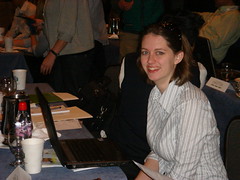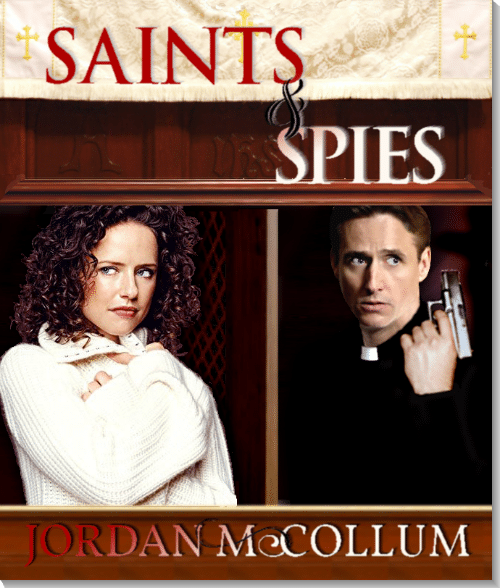And I don’t mean getting published
This time of year is ideal for thinking of our resolutions. But we’re not the only ones who should be working (or autopiloting) toward a goal: in fiction, characters should have a goal, too. Characters’ goals affect their stories from beginning to end, on multiple levels.
Sometimes, we hear “goals” harped on so much that it gives us a complex. I had one: I used to think my characters didn’t have good enough goals. Beyond the scope of the plot, I couldn’t think of what their goals might be.
Plot-level goals
I used to think that characters had to have goals in their lives aside from the ones that get thrust upon them at the beginning of the story. While that’s true, I doubt the hero’s goal of retiring in Hawaii or the heroine’s dream of  owning a bed and breakfast in twenty years plays heavily into their story. (It can help to make the characters richer, of course, but that’s just not what Goal-Motivation-Character is all about.)
owning a bed and breakfast in twenty years plays heavily into their story. (It can help to make the characters richer, of course, but that’s just not what Goal-Motivation-Character is all about.)
Finally, I realized because of the types of stories I write, the plot did contain the characters’ goals, and that was okay. In romance, the characters’ goals often are to find someone. In mysteries, the characters’ goals are to find the killer/perpetrator and bring him/her to justice. There’s something wrong in the world (the character is alone; someone has been killed, etc.), and it’s their job to right it. And that’s OKAY.
The character’s plot-level goal is controlled by the story question. In a romance, it’s “Will they get together?” In a mystery, it’s “Will they catch the bad guy?” In other genres of fiction, of course, the variety of questions might be wider, but it might be “Will Jenny find healing?” or “Will Harry triumph over his awful, lonely roots?”
The answer to all of those story questions is yes. (You could phrase them other ways to get a no, like “Will the murderer get away with it?” or “Will Jenny’s past ultimately defeat her?”) The characters’ external, plot level goals relate directly to these questions. In a romance, with “Will they get together?”, the characters’ goals are to not be alone, to be with someone who understands them, to find someone who will love them in spite or even because of their peculiarities. (These might double as internal goals, too.) In a mystery, the characters’ goals are to serve justice.
Plot level goals are SIMPLE. I worked myself up overthinking this level of goals, worrying that my characters had to have a grand life plan in place and they were on step 27-B section ii-c when suddenly STORY CRISIS comes along. Not necessarily. What does your character get in the end? Is the story about the character’s journey to get that? There’s your goal. (And if your story isn’t about your character’s goal, take another look at your story.)
Internal goals
It was much harder for me to identify characters’ internal goals: until I looked closer at their internal conflicts. Just like the external plot conflict, I found the characters had goals inherent in their conflicts  already. I just hadn’t fully expressed those goals to myself. And when I did, I was able to tweak their character arcs ever so slightly to make the characters even stronger.
already. I just hadn’t fully expressed those goals to myself. And when I did, I was able to tweak their character arcs ever so slightly to make the characters even stronger.
For example, let’s say your character struggles with being disrespected. (Kind of external, but we’ll go with it.) The story follows their internal journey, from disrespected to respected, or maybe from disrespected/low self-esteem to high self-esteem. Their internal goal is right there, inherent in that starting point: gain respect.
To find internal goals, look at the character’s arc. Where does she start from, emotionally? What does she gain or how does he change in the course of the story? Voila.
Internal conflict adds a necessary dimension to characters. Making sure that internal conflict is clear and expressed in a character arc adds a necessary dimension to good fiction.
Scene-level goals
Characters have even smaller goals, of course, than living happily ever after or ridding the world of the threat. Characters should have goals in (almost) every scene. In fact, in Scene & Structure, Jack Bickham says that our POV characters should state their goals for that scene fairly early on.
The prototypical scene begins with the most important character—invariably the viewpoint character—walking into a simulation with a definite, clear-cut, specific goal which appears to be immediately attainable. This goal represents an important step in the character’s game plan—something to be obtained or achieved which will move him one big step closer to the attainment of his major story goal. . . . (24)
The scene begins with a stated, clear-cut goal. (25)
Scene goals are fantastic for structuring fiction at this level because they tell us, the writers, what needs to happen. Our character arrives at the car dealership with the mission to buy a car/talk to his ex-girlfriend/flirt with the new salesguy. (It sets up the “scene question,” if you will: will s/he get this goal?) The character works toward that goal, until the disaster, as Bickham calls it. We answer the scene question with, most likely, a “no” or a “yes, but [complication].” (Just plain yesses should be reserved for false victories, lulling characters into a sense of security, and, of course, the finale.)
But scene goals aren’t just for the beginning and end of scenes. You can use them to keep the tension high in a scene. By reminding the readers what the character is after—and showing the growing disparity between her goal and reality—we can draw the reader along through the scene. As always, we don’t want to harp on anything too much or be repetitive.
Scene-level goals drive the story forward through each scene. Keeping those goals clear helps to keep our characters—and our readers—oriented in the story.
Occasionally, we’ll have something unexpected befall a character in a scene. The POV character may not always have a goal at the beginning of a scene like this—but try to use this technique sparingly, or your characters might seem directionless and as though they’re not taking charge in their life.
Goals and character sympathy
Another role that goals can play in fiction is to help develop character sympathy. How? When readers support a character’s goal, they want the character to succeed. They care.
What does it take to get our readers on board? According to James N. Frey, it takes a noble goal. They can be a really detestable person (Frey’s example is of a convict who wants to break out of prison), but giving them a goal that we can all believe in helps us to believe in the character, too (Frey’s example, IIRC, is that the convict wants to get out of prison to help a family member). And this really works: I felt it happen to me while watching a game show.
What’s noble? Something that’s self-sacrificing, something that benefits another person more than it does the main character, something that helps the general populace (but that can be too vague: helping one concrete person, such as the character’s child, can actually be more effective as a character goal than trying to better the whole world).
Goals and characterization
Our characters sometimes do have life goals other than the plot-level story goals—goals that may or not play into our story, and goals that may or may not be fulfilled in the course of the story. The bed-and-breakfast, a job at the FBI, the private island in the Bahamas.
While these might not really influence the plot, they can still have a great effect on the story: adding layers to your characters. Like real people, our characters can have life goals and dreams. These goals help demonstrate the character’s depth, to round them out.
These goals can manifest in little ways: the FBI job is one of my character’s ultimate goals that doesn’t play into the plot of the story. That goal manifests in her hobbies: spy movies and spy novels. They can also come in handy when they play into the character’s motivations. (I’ll spare you the convoluted explanation of how this happens in my story.)
The biggest caution here: make sure this goal doesn’t upstage the main plot. We’ll see how this works out in edits, but I’ve had a little mixed feedback about my character’s dream. Some readers think it’s so important it needs to be mentioned in the very first chapter. And even though that chapter won the contest, at least one judge complained that the very same character didn’t have any dreams or aspirations. (Why, exactly, they thought she needed to think about those dreams and aspirations when dealing with the murder of her priest, I’m not sure.)
However, adding that to the first chapter might make readers think it’s an important part of the plot. It’s not part of the story question for this book. Our first chapter offers a promise of things to come, not a synopsis of the characters’ lives. If we make a promise of this character’s dream, and especially if it’s not fulfilled in this book, we’re setting our readers up for disappointment.
Instead, use goals and dreams to add depth to the characters and the story—from the hobby on up.
How can you better use goals in your writing?
Photo credits: climbing the mountain—Ben Rohrs;
my life in 10 years—lululemon athletica; grab the brass ring—Foxytocin




 Another example I’ve noticed recently is in Psych. Shawn runs a psychic detective agency with help from his best friend, Gus. However, Gus has another full time job: he’s a pharmaceutical sales rep. His car—the only transportation they have—is a company car (which is comical in its own right). Gus’s job and using the company car are both stock conflicts in the series. If the writers need to add more conflict in the scene or between the main character and his best friend, Gus’s job is their go-to choice (and girls, when they’re both single).
Another example I’ve noticed recently is in Psych. Shawn runs a psychic detective agency with help from his best friend, Gus. However, Gus has another full time job: he’s a pharmaceutical sales rep. His car—the only transportation they have—is a company car (which is comical in its own right). Gus’s job and using the company car are both stock conflicts in the series. If the writers need to add more conflict in the scene or between the main character and his best friend, Gus’s job is their go-to choice (and girls, when they’re both single). .)
.)
